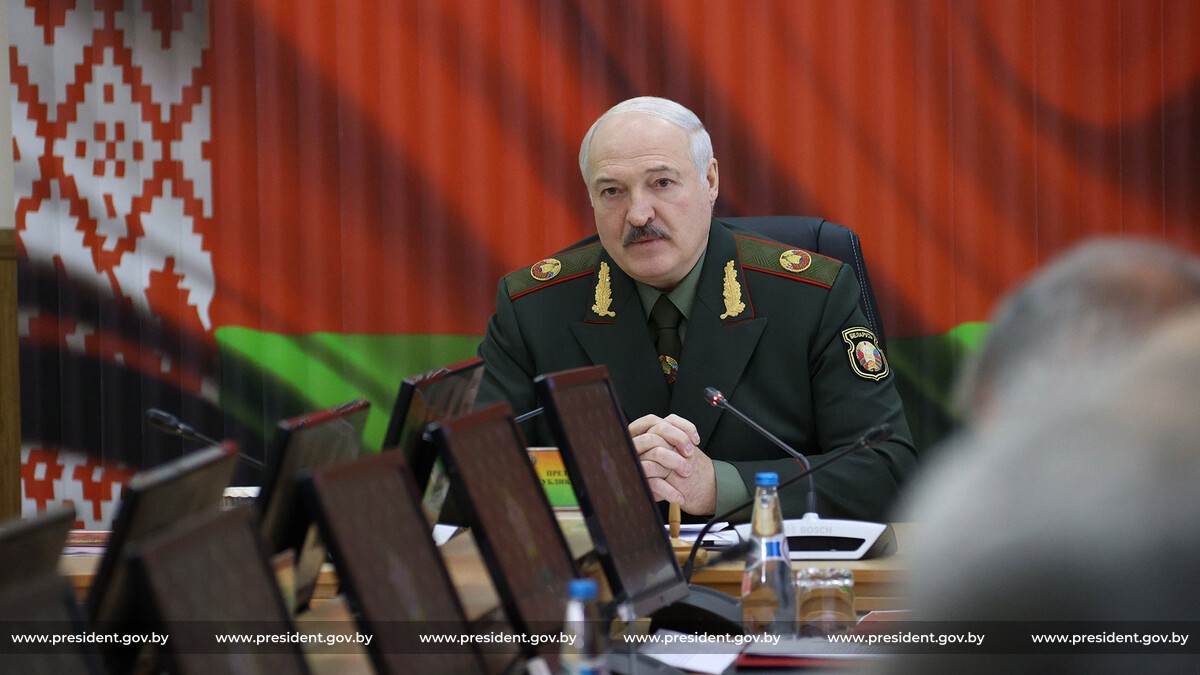Belarusian government resumes support for public sector, Lukashenka has doubts about referendum
 The situation has not changed
The situation has not changed

The National Bank fails to restrain the government from supporting unprofitable state-owned companies. Lukashenka is not so sure a constitutional referendum is needed. He makes controversial statements and announces unpopular initiatives, which is likely due to the loss of adequate feedback from the population and deteriorating quality of domestic analytics.
Lukashenka held a meeting on a constitutional referendum last week and voiced concerns about holding a plebiscite amidst alleged plans of the democratic forces in connection with a referendum.
Many of Lukashenka’s statements for the BBC, including his visit to the refugee camp, were negatively received in society. Belarusian society is rather conservative when it comes to migrants from Arab/Asian countries.
The authorities are trying to create the illusion of high ratings of state institutions, but reliance on security officials suggests otherwise. Moreover, they are aiming to introduce additional restrictive legislative measures, for example, the Interior Ministry proposed to revoke Belarusian citizenship for involvement in extremist crimes. Publicly, this initiative was supported by the Liberal Democratic Party.
This, among other things, causes inflation to accelerate. The government has vouched for BYN 7.8 billion loans for state-owned enterprises or 4.8% of GDP, and local authorities have already issued guarantees for BYN 1.7 billion, or 1% of GDP. The Minsk Oblast Executive Committee will issue bonds worth USD 91 million and BYN 125 million to improve the efficiency of the Myasomolprom holding [Meat and Dairy Production].
However, the government remains to be optimistic regarding the economy. The Finance Ministry has revised the 2021 state budget deficit downward from BYN 6 billion to BYN 4 billion.
State-owned companies continue to lay off workers, primarily those who showed political disloyalty. There were numerous reports from various industries that layoffs are carried out by ‘special lists’.
Simultaneously, political turmoil has negative impact on business – only 4% of start-ups see no reason to leave Belarus. In addition, the EBRD temporarily curtailed funding for the private sector in Belarus.
The authorities are also cutting guarantees for retirees. Real pensions have dropped.
That said, the average salary has increased, but this is rather a consequence of accelerated inflation. Risks of further accelerating inflation are high, which may lead to the devaluation of the Belarusian rouble.
Security forces continue to target business. According to the State Control Committee, two firms supplied equipment and chemicals at an inflated price, including those for PCR tests.
The authorities continue to block web-sites and designate Telegram channels as extremist. The number of political prisoners is increasing.
All in all, the weakening of the National Bank’s influence on decision-making increases the risks of galloping inflation and devaluation.
Subscribe to our newsletter




Situation in Belarus
Constitutional referendum: main consequences


 Video
Video
How to count the political prisoners: are the new criteria needed?


 Video
Video
Paternalism In Decline, Belarusian Euroscepticism, And The Influence Of Russia


 Video
Video












